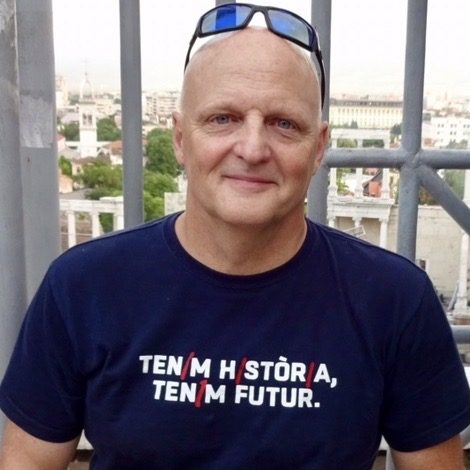The human brain has a tendency to impose binary cognitive schemas upon the sometimes unfathomable complexity of the world around us.
For example, numerous scholars of nationalism have suggested that it is often quite difficult to build a strong and durable national project in the absence of a threatening “other” whose supposed cultural inferiority and innate aggression is said to imperil the integrity of the “home” collective.
It is thus no accident, as the anthropologists Frykman and Löfgren have shown in the particular case of contemporary Sweden, that campaigns of individual and collective hygiene were often important elements of many nationalist movements of the late nineteenth and early twentieth centuries.
Although we don’t often talk about it, we also find this mental apartheid, rooted in a desire to separate the “clean” from the “dirty” in our intellectual world.
Since the Enlightenment, knowledge has been defined in terms of its relationship to ignorance; that is, against the supposedly dark wilderness of facts that are untouched by the organizing magic of well-instructed human minds and are thus considered basically useless.
Under the influence of this world view, which defines ignorance in essentially negative terms—as phenomena devoid of the inherent order of civilization—the act of removing certain cultural repertoires from the eyes of citizens becomes not just an option, but an obligation. And hence the widespread institutional pressure not to analyze the cultural phenomena that someone—usually from a position of power—has labeled as the product of a disordered mind.
But what if things aren’t that simple?
What if it turns out that the creation of ignorance is as basic and constant a part of life as the production of knowledge, and that, moreover, the processes that generate it have readily identifiable structures and patterns? If so, might we not need to study it more closely?
This is the proposal of a growing group of researchers in a field that one of the members, the anthropologist Robert Proctor, calls ‘agnotology,’ and what others simply call ‘the study of ignorance.’
The new field has many thematic thrusts. For me, the most interesting of these, one addressed by Proctor himself, is how very politically and economically powerful groups quite consciously fabricate ignorance among the population, and that they often do so—as he demonstrates effectively in his detailed study of behavior of the American tobacco industry— under the rubric of science and the need to protect people from the influence of misinformation.
None of this, of course, would surprise a veteran intelligence agent in any major country in the world, or a senior executive in a multinational company. Nor would it surprise the growing number of Behavioral Insight Team (BIT) members in the “democratic” governments of the world, or in Silicon Valley.
And needless to say, it certainly would not be news to the vast majority of people who have not been fortunate enough to spend years in college, and thus earn their keep doing hard and often soul-draining work.
In contrast, many, if not most of those who have entered the world of institutionalized intellectual activities seem to have an almost infinite capacity not only to be surprised by the possibility that all of this might be going on, but feel offended by the mere suggestion that certain people, usually of the same educational class as they, might actually be trying to deceive them and others in the name of scientific knowledge.
In the interest of maintaining their coveted sense of intellectual hygiene, they’ve gifted themselves with a set of verbal and thus cognitive tools such as “conspiracy theorist” (developed and deployed, according to prestigious political scientist Lance Dehaven Smith, by the CIA to eliminate awkward questions about the assassination of John F. Kennedy) to facilitate their deep desire to remain ignorant of what people from other, less institutionally-favored sites of knowledge-making might be seeing and thinking.
The latest trick of the institutionalized elites in this serial game of curbing the proliferation of fresh interpretations of reality from below is to transform science, which is defined by its disdain for dogma, into a rigid canon of authoritarian prescriptions that do not admit dialogue or dissent.
An essential element of this new game is to present the views of a very small number of scientists chosen by the powerful as the embodiment of science itself, and to free these unelected mandarins from the need to ever have to justify their thoughts and actions in the context of a debate.
Fomenting Ignorance on Natural Immunity
Given the potentially large number of people affected, one of the most important parts of the Covid phenomenon is the issue of natural immunity. For nearly two years our public health officials have used the classic ignorance-inducing tools of big tobacco and big oil—”We really don’t know” and “We still don’t have enough information”—to avoid a public discussion on the issue.
This, as if one of the most basic laws of immunology—that overcoming a viral attack almost always produces lasting immunity—was suddenly ruled out when it came to treating a particular variant of a well-known and well-studied family of viruses.
This wall of manufactured silence prevented tens of millions of previously-infected citizens from making halfway informed decisions about experimental vaccines in the first months of the vaccine rollout.
When, however, in the spring of 2021 Senator Ron Johnson and Senator Rand Paul, a doctor, both announced they had recovered from Covid and thus saw no need to take the vaccine, the ignorance machine switched from passive (information restriction) to active (“reality” creation) mode.
On May 19, 2021, after several doctors with impeccable credentials had publicly confirmed the scientific obviousness of what Johnson and Paul had said, the FDA—the same FDA that was then encouraging the boundless use of wildly inaccurate PCR operating on an EUA to stigmatize perfectly healthy people as sick and in need of de facto imprisonment—suddenly issued a new statement cautioning against the use of the fully approved Covid antibody tests to assess a patient’s level of immunity against Covid, saying:
Currently authorized SARS-CoV-2 antibody tests have not been evaluated to assess the level of protection provided by an immune response to COVID-19 vaccination. If antibody test results are interpreted incorrectly, there is a potential risk that people may take fewer precautions against SARS-CoV-2 exposure. Taking fewer steps to protect against SARS-CoV-2 can increase their risk of SARS-CoV-2 infection and may result in the increased spread of SARS-CoV-2.
When I asked him about this statement and the FDA commissioner’s public endorsement of it back in May, surgeon and immunologist Hooman Noorchashm stated, “It’s 100% unscientific.” He then went on to further explain the matter in a post on Medium:
As an analogy, this FDA statement against use of COVID-19 antibodies to assess immunity is so absurd, it would be like NASA putting out a public statement advising the public that we should no longer assume that the earth is round…… the current commissioner of the FDA proudly states in a Tweet that the gold-standard serological evidence of immunity to the SARS-CoV-2 (i.e., the antibody tests for Spike protein and Nucleocapsid) means nothing in 2021. No matter that this same clinical readout (i.e., antibodies against SARS-CoV-2) was used to assess the vaccine’s efficacy in the clinical trials leading to EUA approval of the COVID-19 vaccines.
We’ve seen the same sort of gross manipulation in regard to encouraging the widespread impression among the population that by taking the vaccines one was gaining immunity from infection and an end to the ability to transmit the virus to others.
Are we really supposed to believe that the authorities pushing the vaccines and publicly suggesting that they will end infection and transmission really had not read the same EUA approvals that every thinking citizen has at their disposal since the very first months of 2021?
And this is where, in light of these phenomena, it becomes incumbent on each one of us to decide how we wish to confront the problem of information management by public authorities as we go forward.
Are we going to continue to seek refuge in what I have come to term the “juvenile” posture before such realities? This appears to be the default position of the credentialed classes, and holds that the people in our governmental and regulatory bodies are basically honest brokers who, like most of us, make mistakes owing to either understandable inattention or a lack of reliable information.
We need to begin facing up, as adults, to the stark fact that our public institutions have been captured by a minority of people who essentially view us as a headless and manipulable biomass to be nudged in ways that benefit their long-term goals and desires, and who in the pursuit of those ends have built a very sophisticated ignorance machine to insure we continue to conform to the very low expectations they have for us as moral intellectual and moral beings.
We should study, as one carefully studies a captured spy plane of an enemy power, exactly how that ignorance machine works. Otherwise will we continue to pretend, childlike, that these highly consequential untruths that profoundly affect our lives were a natural and largely innocent byproduct of the entropic reality of life.
It is a choice each one of us will have to make, the answers to which will have far-reaching consequences on the success or failure of our collective efforts to recover the rights and freedoms stolen from us over the last two years.
Published under a Creative Commons Attribution 4.0 International License
For reprints, please set the canonical link back to the original Brownstone Institute Article and Author.









